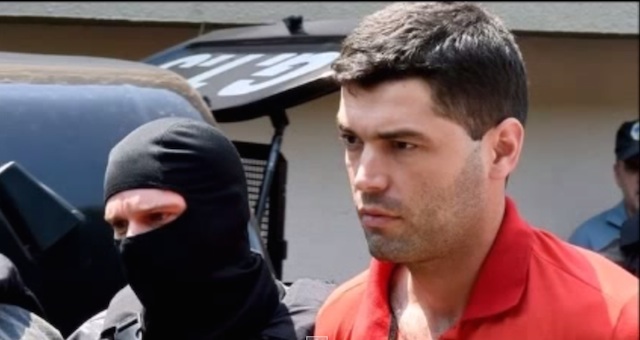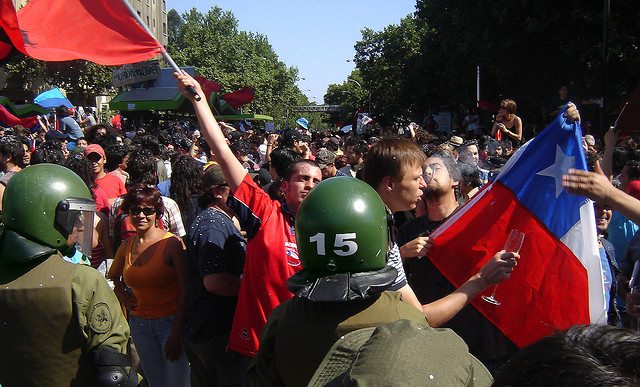
Latin America: Week in Review
Nicaragua Is the Least Democratic Country in Latin America, Report Finds
October 18, 2019 By Staff
TODAY IN LATIN AMERICA
NICARAGUA: According to the latest Barometer of the Americas report, Nicaragua is the least democratic country in Latin America. The report, using data collected from the beginning of 2018 to the summer of 2019, notes the arrest and detention of political prisoners as one of the most important factors in its designation. “This type of capture and retention of citizens as political prisoners undermines the basic human rights that are supposed to be granted to citizens in a democratic system,” the report says.
Nicaragua’s failing economy, weakened branches of government and general instability are also listed as factors. The democratic decline, the report says, is due to a growing “disregard of the rule of law.” In Nicaragua, this is evidenced in “corruption and an escalation of authoritarian tendencies, populism and violence,” according to the report.
The report was published by the Latin American Public Opinion Project (LAPOP), a research institute housed at Vanderbilt University. It is based on data collected by Freedom House and V-Dem. It does not include data on Venezuela or Haiti.
Headlines from the western hemisphere
SOUTHERN CONE
BRAZIL: Luciano Bivar, the head of the President Jair Bolsonaro’s political party, became the target of a police search and seizure warrants Tuesday due to his alleged involvement in electoral fraud practices in the past regional elections, according to the AP. The Police State agents targeted Bivar’s house in Jaboatão dos Guararapes and Bolsonaro’s Social Liberal Party offices in Recife, O Globo reported. The Regional Electoral Court of Pernambuco released the order in the middle of an investigation to determine if the Social Liberal Party violated the law that requires parties to spend at least 30% of campaign funding on female candidates.
ANDES
VENEZUELA: President Nicolás Maduro’s regime won a seat on the United Nations Human Rights Council, despite enormous opposition from at least 50 countries that no longer recognize Maduro as the legitimate leader of Venezuela, according to the AP. After the election, Maduro celebrated the 105 votes via Twitter that made Venezuela one of the 14 countries on the U.N. Human Rights Council until 2022. Two days before the election, Louis Charbonneau, the Executive Director of the NGO Humans Rights Watch, said the decision would be “a slap in the face to the country’s countless victims,” including those who have been tortured and murdered by the government, and the millions of migrants and refugees who have left the country due to the internal turmoil.
ECUADOR: Yesterday the Ecuadorian Bishops Conference said in a news release that if President Lenín Moreno changes the abortion law in the country, they fear a new “popular discontent” will arise. The statement comes just a few days after Moreno agreed with the Indigenous movement that was protesting several government policies. Moreno must send to Congress his modifications to the National Criminal Code that currently states abortion is a crime even if the pregnancy is a result of rape. Since 2013, women right’s organizations have been fighting to legalize abortion. Clandestine abortions are the second cause of maternal deaths in Ecuador.
CARIBBEAN
HAITI: Protesters against President Jovenel Moïse blocked the leader from attending the public celebration of former leader Jean-Jacques Dessalines yesterday. The president was forced to attend a private celebration of what is usually a large, public ceremony after a group blocked off Pont-Rouge, a location just north of where Dessalines was killed by a military coup in 1806. The opposition demanded Moïse’s resignation and “dared” the leader to enter the public celebration. Armed police officers broke up the demonstration, while government officials celebrated privately at the National Pantheon Museum.
CENTRAL AMERICA
HONDURAS: In closing statements yesterday, prosecutor Emil Bove told the jury that Juan Antonio Hernandez, brother of President Juan Orlando Hernandez, had created “state-sponsored” drug trafficking by influencing politicians to protect dealers. Bove asked the jury to sentence Juan Antonio to a life in prison. In the defense’s closing, attorney Michael Tein called the prosecution’s statement “shock and awe” and their witnesses “liars, losers and murderers.” “This isn’t a referendum on the drug war,” Tein said. The trial lasted two weeks and included accusations against the current president of accepting bribes from drug smugglers, including Mexican drug kingpin Joaquín “El Chapo” Guzmán. The jury started deliberations yesterday.
NORTH AMERICA
MEXICO: Yesterday Mexico broke ground on a project to build a new airport in Santa Lucia to supplement the capital’s overtaxed international airport. A video showed a rendering of the envisioned facility, which involves building two additional landing strips that President Andrés Manuel López Obrador vowed to inaugurate in spring 2022. AMLO campaigned last year on promises to cancel the planned new mega-airport at Texcoco and instead push for what he called a “metropolitan airport system” that involves constructing the new airport and preserving the current Benito Juarez International airport instead of decommissioning it. The president has been criticized for building this new airport in Santa Lucia without consulting Indigenous people and taking environmental factors into consideration.
MEXICO: A court in Mexico has ordered the re-arrest of seven soldiers charged with abuse of authority. The June 2014 massacre involved soldiers who killed 22 suspects at a grain warehouse in the town of Tlatlaya. The human rights investigation showed that at least eight, and perhaps many as dozens, suspects were executed after surrendering. The court ordered three of the seven soldiers to stand trial on charges of tampering with evidence at the crime scene.
MEXICO: Yesterday President Andrés Manuel López Obrador sent a letter to U.S. Congressman Richard Neal promising a national yearly minimum wage raise of at least 2% and reiterating his eagerness to ratify the TMEC trade agreement. AMLO said he finds TMEC beneficial for both parties involved and is already directly asking for the approval of U.S members of congress, including House Speaker Nancy Pelosi.





